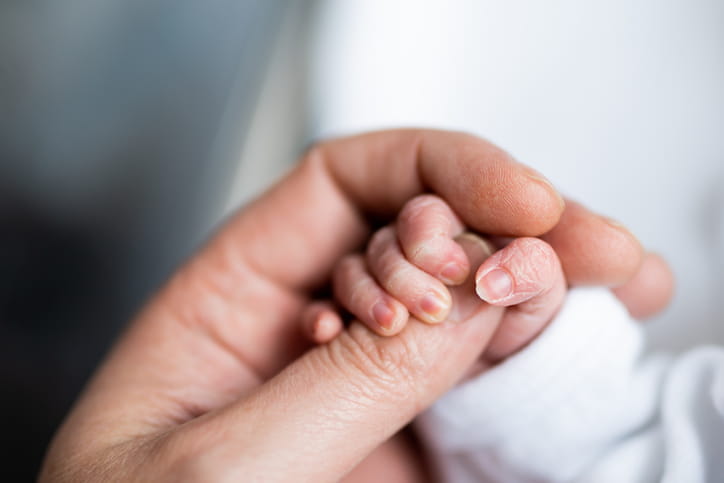Birth Injury: Periventricular Leukomalacia
- What is Periventricular Leukomalacia?
- What causes PVL in babies?
- Which children are at risk for PVL?
- Common PVL signs and symptoms
- How is PVL diagnosed?
- Periventricular Leukomalacia treatment
- What is the long-term outlook for a baby with Periventricular Leukomalacia?
- What damages may be recoverable in a PVL birth injury claim?
- Should I file a Periventricular Leukomalacia birth injury claim?
What is Periventricular Leukomalacia?
Periventricular leukomalacia (PVL) is a type of brain injury that affects newborns, especially those born extremely prematurely. It causes damage to the white matter in the brain that surrounds the fluid-filled ventricles.
What causes PVL in babies?
The exact causes of PVL are not currently known, but there are several factors thought to contribute to the condition.
- Lack of blood flow or oxygen to the brain: If a baby does not receive adequate blood flow or oxygen to the brain, it can lead to brain damage and PVL.
- Infections during pregnancy: Certain infections that a mother contracts during pregnancy can affect the developing baby’s brain and lead to PVL.
- Early rupture of the amniotic sac: This can happen if there is too much fluid in the womb.
- Premature birth: Very premature, low birth weight babies are at higher risk for PVL because their brains are more susceptible to injury.
Medical malpractice or negligence can play a significant role in this, and it can happen during any stage of pregnancy, labor, and delivery. For example, a doctor may fail to monitor a baby’s oxygen levels during delivery, leading to brain damage and PVL. Additionally, if a hospital or doctor fails to provide appropriate care for a pregnant woman, such as monitoring and treating high blood pressure or infections, it can increase the risk of PVL in her baby.

Which children are at risk for PVL?
Premature babies are most at risk for PVL, particularly those born before 32 weeks and with very low birth weights. It occurs in some babies who experience blood flow problems or oxygen deprivation before birth or during their early days of life.
Common PVL signs and symptoms
The signs and symptoms of PVL can vary depending on the severity of the brain injury. Some common signs and symptoms include:
- Delayed development, including slow motor development
- Stiffness or tightness of the muscles (spasticity)
- Urinary incontinence
- Seizures or abnormal electrical activity in the brain (epilepsy)
- Vision and hearing impairments
How is PVL diagnosed?
Some symptoms of PVL may not be noticeable until the child is at least a few months old. However, if a baby is extremely premature, most doctors will perform the following tests for the condition:
- Cranial ultrasound: This allows doctors to see a baby’s brain using sound waves. They do this by placing a device on the soft spot on top of the baby’s head.
- Magnetic resonance imaging (MRI): This takes pictures of the brain using magnets and radio waves to create a detailed image without exposing the baby to X-rays.
Periventricular Leukomalacia treatment
Unfortunately, there is no cure or fool-proof treatment for PVL. Because the damage from this condition occurs so early in life, the brain will never develop properly. However, there is care available that can help alleviate some symptoms. This could include things like speech or physical therapy.
What is the long-term outlook for a baby with Periventricular Leukomalacia?
PVL often leads to issues with both physical and mental development, but it varies from patient to patient. Some common conditions children with PVL are at risk for include:
- Coordination issues
- Vision problems
- Seizures
- Hearing problems
- Incontinence
- Cerebral palsy
- Mental delays
- Scoliosis
- Movement issues
- Spasticity
Issues with PVL don’t always show up at birth. In some cases, it takes months or even years to develop. That’s why it’s crucial to contact a birth injury lawyer in the beginning, so they can help you navigate the expenses that are likely to grow over time.
What damages may be recoverable in a PVL birth injury claim?
Recoverable damages for these cases vary from state to state and will depend on the type of claim filed.
One type of lawsuit is birth-related medical malpractice. This could happen when the mother or child is injured during birth or pregnancy due to negligence on the part of the medical staff. In these cases, you may be able to recover costs associated with physical and mental anguish and ongoing medical expenses.
Another type is a wrongful birth lawsuit. This is where the doctor failed to warn you about the possible congenital disabilities that may have allowed you to avoid or end the pregnancy. The recoverable costs in these cases can include medical expenses and ongoing therapy.
Lastly, if the medical method you used for avoiding pregnancy failed (such as sterilization or abortion), you could have a wrongful pregnancy lawsuit. Then, most states will allow you to sue for medical expenses, lost wages, and emotional damage.
Should I file a Periventricular Leukomalacia birth injury claim?

Caring for a child with PVL can be extremely costly, especially with worsening conditions throughout the course of their life. If the damage was done due to negligence of a medical provider or institution, you may need the assistance of an experienced birth injury attorney to recover some of those expenses.
Medical malpractice is not always considered a criminal case (it is mostly considered a civil case). Still, there are times when the case may be regarded as criminal based on the circumstances. The victim advocates at Bachus & Schanker stand as a voice for the victims. We can help you file your PVL case and guide you through the difficult process of gathering evidence to prove the medical negligence that caused PVL in your newborn.
Citations:
Boeschen, C. (2023). Birth-Related Medical Malpractice.
Periventricular Leukomalacia. (2012).
Periventricular Leukomalacia (PVL). (2022).

Written and Legally Reviewed By: Kyle Bachus
4.6 ★★★★★ 1,461 Google Reviews
Kyle is a member of the Colorado and Florida Bar associations and has served on the Board of Directors of the Colorado Trial Lawyers Association for more than twenty years in total. Over the years, Kyle has achieved justice for many clients. He has served on numerous committees and repeatedly won recognition from his peers at both the state and national level. He is proud of the role he has played in the passage of state and national legislation to protect consumers and is a frequent speaker and guest lecturer.
